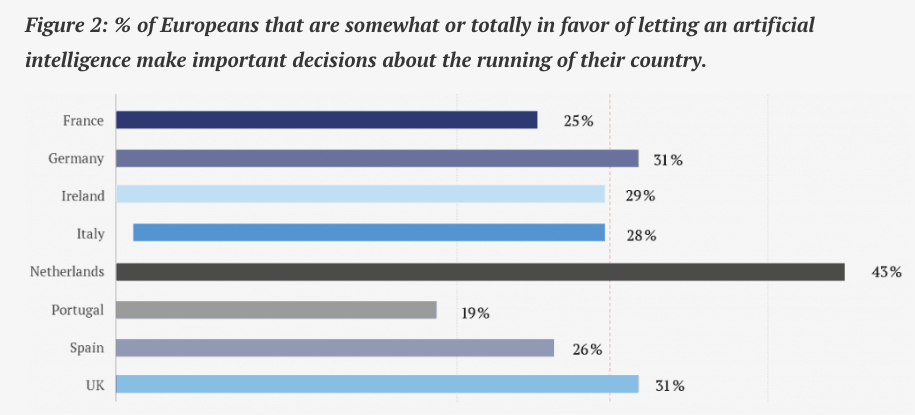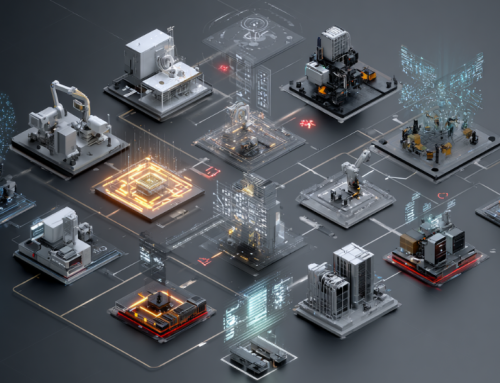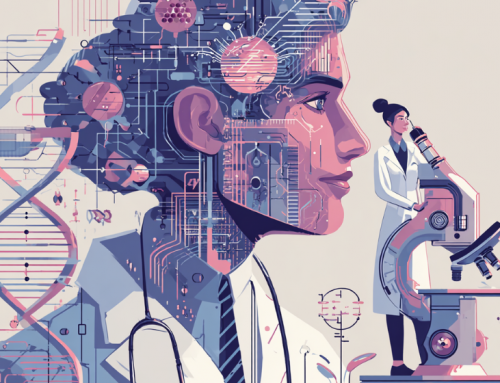Expert, Many Europeans Favor AI to Lead Governments
A leading AI proponent said that world leaders will eventually be replaced by robots with artificial intelligence. It’s an audacious statement, but one that deserves examination.
In a story on the UK’s Daily Star Online yesterday, computer science professor Dr. David Levy said he believes that voters will agree to replace human legislators and leaders with robots in the future.
“If you think about what a President or Prime Minister has to do, he has to make decisions about economic, political, health and transport matters. These types of decisions will eventually be made much better by an AI than by humans, because AI is developing at such a fast rate that just about every task that requires human intuition and intelligence will be solvable by AI. So you could have, for example, an AI that knows everything about economics, and an AI that knows everything about health and medicine, and every single branch of government could be an AI programme, so why do you need a human in the White House?”

Dr. David Levy (credit: Harper Collins publisher)
The author of “Love and Sex with Robots,” Levy said he thinks AI will have better judgment and be superior at governing, and in anywhere from 30 to 50 years from now, everyone will agree.
The UK newspaper commented that British exasperation over Brexit makes confidence in the government low, and also mentioned the “chaos” of the Trump presidency.
But Levy isn’t the first proponent of the idea of having AI run the world.
A Vox.com article reported in March of this year that a quarter of Europeans want AI to replace politicians, though it called the idea, “terrible.”
These striking findings come from a new survey conducted by the Center for the Governance of Change at IE University in Spain, which polled people in eight European countries. The questions explored how citizens feel about the way technology is transforming the world, from the workplace (40 percent think their company will disappear in a decade if it doesn’t make big changes) to the public square (68 percent fear that people will socialize more digitally than in person).
The article, however, argues against it because AI is biased by human programming and can cause unpredictable problems. It also doesn’t understand human behavior well enough to act appropriately in leading people, the writer argues.
A story on the World Economic Forum’s website in October of 2018 theorized that AI will take over many white-collar jobs, and that commentators from countries such as the UK, New Zealand and Japan suggested that robots could improve decision-making by being more logical than humans. The catch, however, is that the majority of people don’t like the idea, the article said.
“Evidence tells us that emotions drive politics and that voters appreciate ‘likeable flaws,’ as experts stressed over and over again when explaining the unexpected election (and subsequent actions) of U.S. President Donald Trump. Still, wouldn’t ‘robogov’ be far superior when making complex, high-stakes policy decisions? While being governed by elected or appointed robots, cyborgs or algorithms may sound like science fiction, the advantages of robogov should still be obvious. Being far less hampered by ideological extremism and tunnel vision, or by the egotism and narcissistic tendencies that seem to characterize many government leaders, robogov may be able to make rational, fair, well-rounded and evidenced-based decisions.”

Robogov would be less susceptible to corruption and unethical behavior and would be able to make better decisions on complex issues, the advocates argue. However, the article concludes:
“Ultimately, a more realistic and desirable scenario is one in which AI and automation are neither competitors nor substitutes to humans, but tools that government leaders can engage effectively and sometimes defer to, in order to make better, fairer and more inclusive decisions. Cynics will point out that authoritarian regimes already misuse robogov to do the exact opposite. The rapidly expanded use of AI by governments for unprecedented surveillance, public naming and shaming, and social discrediting of citizens raises serious questions of this nature.”








Leave A Comment